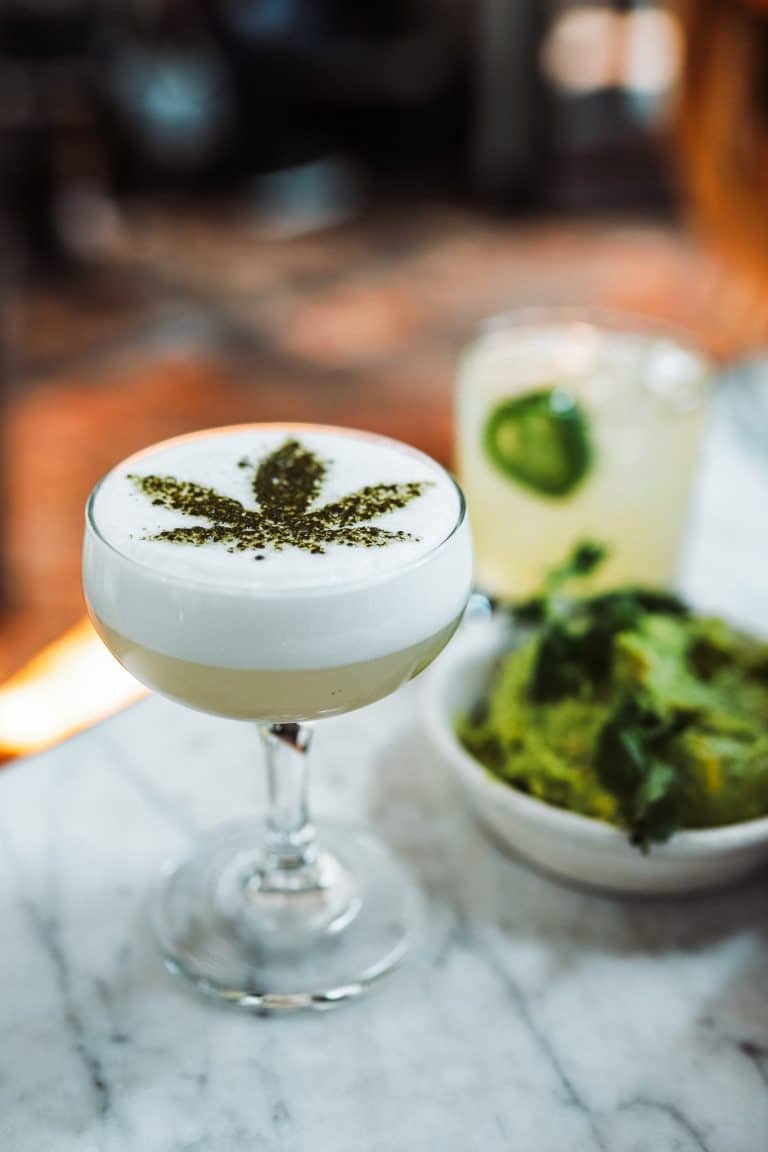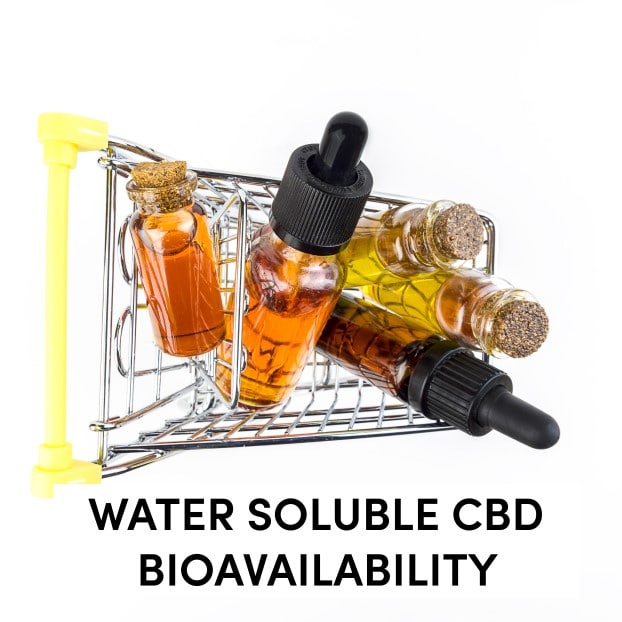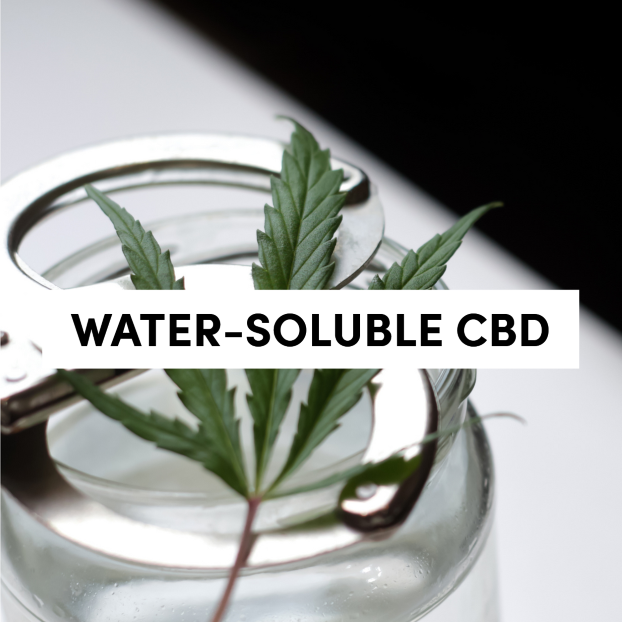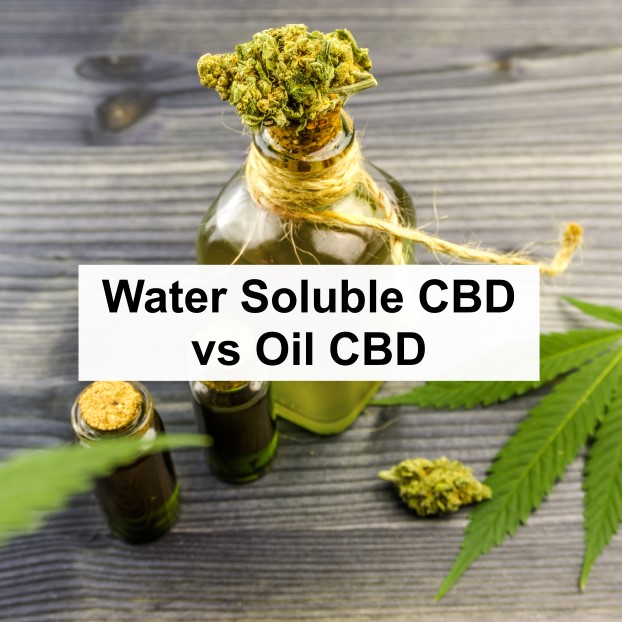CBD Water Soluble Benefits
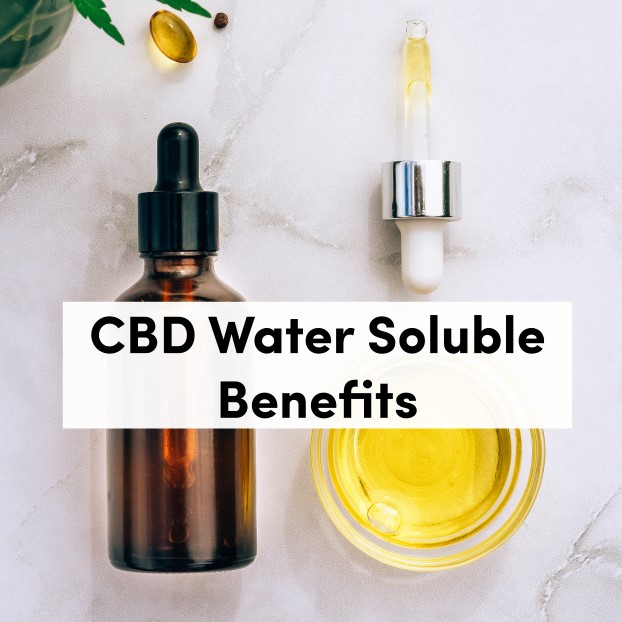
Posted on March 1st, 2021
CBD is one of the most popular compounds belonging to the cannabinoid family of chemical compounds. You and interested manufacturers can find this popular cannabinoid inside the cannabis plant alongside a hundred other cannabinoids.
First discovered in the 40s, it took until the year 1963 for researchers to start looking into the effects of individual cannabinoids. THC, CBD, and CBN were first on their list. Nevertheless, it was not until more than 50 years after that date that CBD became a commoditized product, thanks to the passage of the 2018 farm bill. That’s quite a long time for compound researchers to know about for a long time,
The primary provision of the 2018 farm bill is that industrial hemp plants, from which CBD comes, might not comprise above 0.3% THC by dry volume. THC is the psychoactive compound of cannabis and the reason why you get high when ingesting marijuana. Thus, industrial hemp is the perfect source for CBD, a compound that will not get you high but will deliver therapeutic effects. Still, the human body has comparatively a harder time absorbing CBD, whatever its concentration might be than it does THC. Thus, manufacturers have been hard at work in improving the bioavailability of the compound. And they might have just stumbled upon the answer with the CBD water soluble formula. Keep on reading to find out just what CBD water soluble does, how it comes to be, and what it can offer you.
Where Does CBD Oil Come From?
As said earlier, CBD comes from the cannabis plant. However, there are two main varieties of cannabis, namely hemp or marijuana. The main difference between the two of them is on its THC levels, with marijuana having a higher content. The FDA approved the legalization of hemp plants under the Farm Bill, provided they hold less than 0.3% THC.
Health Benefits
CBD’s mechanism of action involves the body’s endocannabinoid system (ECS) and its receptors. Unlike THC, CBD possesses a significantly low affinity for ECS receptors in the brain. They’re the receptors to which THC adheres to induce its psychoactive effects.
The current consensus is that CBD attaches itself differently than THC. This has two effects: one is that by attaching itself first, CBD might prevent THC from binding to the receptors. Thus, it might soften the effect of consuming THC after ingesting CBD has. Two, it allows it to influence other mechanisms that end up helping boost potential therapeutic effects on its own. One example involves the endocannabinoid anandamide, which delivers feel-good effects to the body. CBD’s influence might prolong its effects in the body, which is naturally short without the assistance of the compound.
According to enthusiasts, CBD oil might also help address a wide range of health conditions, including:
- Acne
- Anxiety
- Anorexia
- Depression
- Chronic pain
- Parkinson’s disease
- Muscle spasms
- Insomnia
- High blood pressure
- Epilepsy
- Glaucoma
Such a long list of conditions it supposedly might help you with definitively points to CBD being worth a look at as a potential alternative supplement.
CBD Oil Side Effects
Mostly, CBD oil doesn’t cause any major adverse side effects for users. Nonetheless, the compound might cause you the following side-effects:
- Dry mouth
- Diarrhea
- Reduced appetite
- Drowsiness
- Fatigue
- Interact with certain medications
The goods news is that enthusiasts report only getting these side effects as a result of consuming an inordinately large amount of the compound. Thus, if you manage to not go overboard with CBD, you might have nothing to worry about.
What Is CBD Water Soluble?
Cannabinoids like CBD and THC are hydrophobic, oily substances. That means they do not ‘blend’ or mix with water at all. Thus, CBD is not water soluble naturally. Now, making CBD water soluble involves adding cannabinoids into the water by isolating them into small particles, particularly molecules or ions.
How Is CBD Water Soluble Made?
Typically, CBD comes to be through the use of nanotechnology. That is the science and engineering that deals with the synthesis, characterization, design, and usage of materials in their smallest functional organization measured in the nanometer scale. Nanotechnology uses soundwaves to convert CBD clusters into tiny-sized particles measuring below 100 nanometers.
Therefore, for oils like CBD oil to become mixable with water, they must be created as nanoemulsions or microemulsions. This is a liquid suspension process that allows securing bio-active components. Scientifically, the liquid suspension process’s formal name is “colloidal dispersions.” The process suspends tiny particles and distributes them throughout the liquid.
Nano and microemulsions may end up becoming concentrated forms that can fully mix with water; therefore, appearing water-soluble. You should know that emulsions need the application of surfactants to dilute the products. You can find various natural surfactant options with few adverse effects. Nonetheless, it’s best to use the smallest surfactant amount possible.
After breaking it down into small particles, CBD then becomes H2O-compatible and blends well with the H2O molecules. Then, emulsion! In a general sense, the microemulsions and nanoemulsions are visually homogeneous water/oil mixtures.
What Are CBD Water Soluble Benefits?
In comparison to regular CBD oil, CBD water soluble offers users more control over their CBD consumption.
Below is a list of some CBD water soluble benefits:
CBD water-soluble is highly bioavailable
The term “higher bioavailability” implies the number of nutrients in a particular product your body might potentially absorb. When a CBD product possesses high bioavailability, it means that much of it may end up absorbed into your bloodstream
High bioavailability it’s a surefire to enjoy the whole potential of a product like CBD. The more bioavailability it has, the more of it ends up reaching your system. Thus, the more therapeutic effects it might deliver.
Increased convenience
CBD water soluble is particularly convenient when it comes in pill or capsule presentation. CBD capsules filled with regular CBD oil have low bioavailability; a significant part of it gets lost during ingestion. Not so much when CBD water soluble fills the capsule thanks to its high bioavailability.
Taking CBD by pill is certainly inconspicuous and convenient. Do you want to hop on a plane and carry your CBD capsules with you? Pretty easy. Are you looking to take your CBD in public with minimal to zero stares or attention from other people? Do it; most people do take pills already.
Available products enable consistent dosing
Generally speaking, each capsule, pill, or soft gel contains a certain CBD amount. The advantage of this is that you’ll know precisely what dosage you are receiving. No guessing games or trying to remember how many mg is in a vape tank or a pipette. It’s the same, constant dose all the time. Moreover, when it comes to CBD water soluble, you’ll know most of it will make its way to your bloodstream.
Are There Any Downsides to CBD Water Soluble?
Possibly! It will depend on the user and what type of CBD product they’re seeking. Here are a couple of things to keep in mind about CBD water soluble formulas.
Typically, CBD water-soluble only comprises CBD
One con to this type of CBD is that you might simply be getting CBD to isolate but in a liquid form. Traditional isolates are the crystallized and purest CBD form. Although this sounds great, some users like other cannabinoids included with their CBD. As a result, this water-soluble form might not come with all the advantages full spectrum CBD has to offer.
This might be a great thing to some. However, some users might prefer to trace THC amounts to experience the whole range the plant has to offer them. For example, some users might prefer full-spectrum CBD because of the special blend of cannabinoids, flavonoids, terpenes, and up to 0.3% THC that supposedly is what causes them to experience the entourage effect.
CBD water soluble might not last in your system for long
Typically, because of the way the body metabolizes fats and oils, full and broad-spectrum oils last longer in the system. This enables them to have longer-lasting effects, unlike CBD water-soluble, which you might excrete if you urinate.
CBD Water Soluble Benefits Over Regular CBD
So, why would you choose water-soluble CBD? When it comes to plant-extract delivery science, there’s a phenomenon known as the first-pass metabolism. It is when a compound’s concentration is significantly lowered before it reaches circulation in the system. That brings bioavailability levels down and is very popular for most supplements and compounds, including CBD oil.
CBD water soluble oil usually enters the system almost immediately. Our body does not have to spend energy and time to encapsulate the oil or other fatty components. By skipping this process then your stomach acid and enzymes in your liver will not destroy part of the oil ingested.
For example, the product’s bioavailability when in capsule form goes from 10-15% to almost 100%. That makes CBD water soluble oil the ideal option to have the most out of your purchase.
Who & When Should You Enjoy The CBD Water Soluble Benefits?
Although choosing between CBD oil products and water-soluble CBD products is each person’s choice. The key to determining which might be best for you is by assessing your priorities.
In case you don’t like CBD oil’s taste, not looking to use it as a skin enhancer, or even vaping the oil, then CBD water soluble it’s a great choice. Undoubtedly, water-soluble CBD’s easy absorption by the body makes it convenient for those that want a quick effect.

